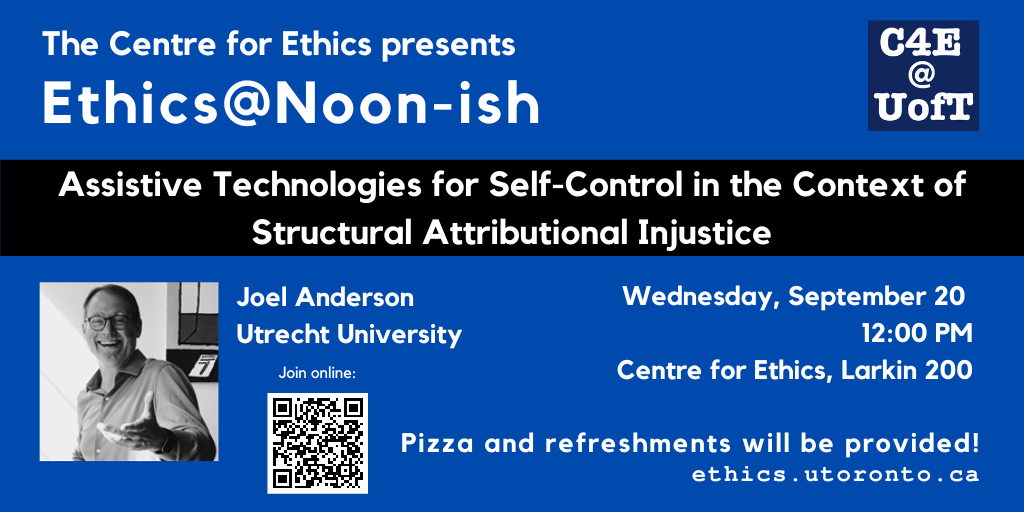
► To stay informed about other upcoming events at the Centre for Ethics, opportunities, and more, please sign up for our newsletter.
Assistive Technologies for Self-Control in the Context of Structural Attributional Injustice
Social justice is not just a matter of non-discrimination but also of inclusion, of being able to secure uptake in social cooperation. One of the key determinants of the extent to which one can fully participate in society is that one is taken to be sufficiently competent in the relevant sense by those other participants in the relevant social practices and institutional context. As has often been noted, injustice can take the form of systematically bias in the attribution of competence, especially in the refusal to recognize competent individuals as such, or in the reliance on arbitrary criteria for competence. In addition to these concerns about testimonial or hermeneutical injustice, there are also concerns about whether individuals have real opportunities for (1) co-determining the “entry requirements” for social practices and (2) developing the capacities that are legitimately expected. In our cooperative endeavors, one particularly significant expectation is that we can trust others to be able to exercise the requisite degree of self-control. “Autonomy gaps” in this domain can be especially marginalizing. Self-regulatory capacities do, however, vary significantly, and the basis for their attribution is fraught and contested. This context of the power-ridden pragmatics of competence-attribution has significant implications for how we ought to approach an emerging set of technologies that offer support for self-control and, more broadly, for various forms of “scaffolded” or “extended” willpower.
► this event is hybrid. Join in person at the Centre for Ethics (Larkin building, room 200) or online here.

Joel Anderson
Utrecht University
Wed, Sep 20, 2023
12:00 PM - 01:30 PM
Centre for Ethics, University of Toronto
200 Larkin
